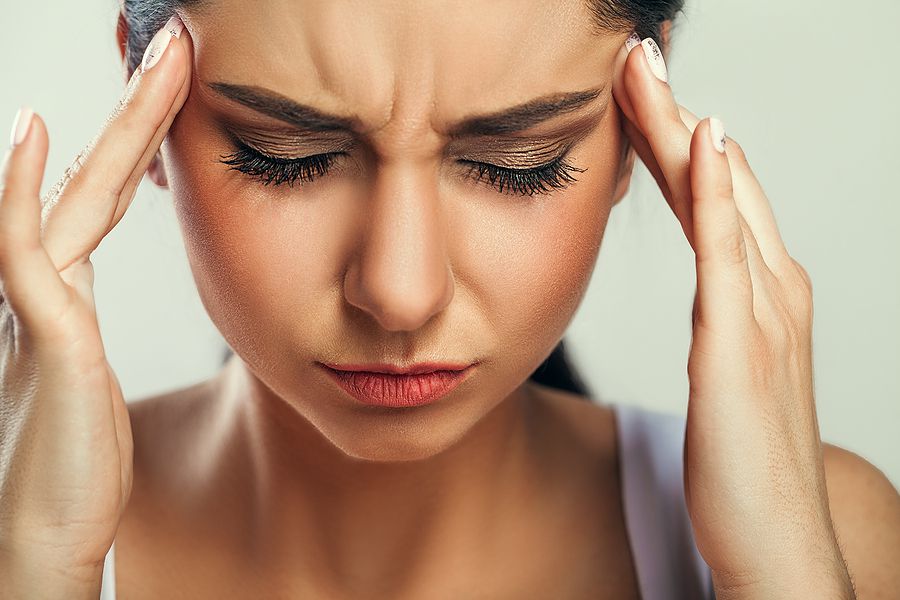During these unprecedented times resulted from the Covid 19 pandemic, we need to work extra hard to manage our anxiety and emotions well. Everything on the internet is trying to make you think you aren’t doing enough with the “extra time” you have now. This has resulted in many people being over-conscious and anxious about everything around them.
In the midst of this global pandemic that has challenged nearly every facet of modern life, it has become difficult for every people around the globe to get things done.
As your dental health providers, we have a front-row seat to the effects the stressors of the recent pandemic have had on our patients. Really, on all of us. For a lot of us, we internalize it. This can result in several ways our bodies try to reduce stress. One way is clenching and grinding. We do this in our sleep or even while we are awake. For example, while we are driving our cars or on a long teleconference call. Some find relief in chewing on pen tops, hard candy, or an increase in snacking. An increase in snacking can have a direct effect on our weight. When we gain weight, we can lose sleep due to snoring more or sleep apnea disturbances.
The other habits (ex. clenching/grinding, chewing on pen tops, etc.) can cause TMJ problems, teeth to chip, crack and/or break. The good news, yep, that’s right, the good news….all of this can be prevented. There are several options for appliances. We will make a custom appliance to fit your needs, help you feel better, and take the necessary steps to get you better and relieve some of the side effects of stress. Together, we can.
As per a survey conducted by ADA Health Policy Institute, more than 70% of dentists who participated in the survey have seen an increase of patients experiencing teeth grinding and clenching. These conditions are often associated with stress and can be seen as an aftereffect of the Covid-19 pandemic.
The survey also observed a little more than 60% of dentists saw an increase in other stress-related dental conditions like chipped and cracked teeth, temporomandibular joint disorder symptoms such as jaw pain, headaches, etc.
Stress, Anger, and Anxiety Can Cause Bruxism
Among many other reasons, anger, anxiety, frustration, and stress contribute to teeth grinding in people.
How Bruxism Impacts Your Oral Health
Studies have found that when you grind or clench your teeth while sleeping, the clenching force can be higher than when compared to regular chewing. While eating food, the chewing motion is buffered by the food inside our mouth. But with sleep bruxism, when you grind the teeth, your teeth receive the entire force. Bruxism can lead to:
- Wearing away of the tooth enamel and dentin, causing tooth sensitivity
- Cracking or chipping of teeth or other restoration works like bridgework or implants
- Tooth sensitivity
- Painful or loose teeth
- Facial pain resulting from clenching of jaw muscles
- Headaches
- TMJ issues
What can you do to prevent grinding and clenching, even if you’re stressed?
Stress and anxiety result in clenching and grinding of our teeth. We recommend our patients cut down on cigarettes and alcohol, leading to stress and clenching their jaw. You can also practice de-stressing practices by putting away your work and computer an hour before bedtime, taking a warm shower, or playing soothing music.
If you notice you clenching your teeth, to break the habit, we suggest you place your lips together, teeth apart, and rest your tongue behind the front teeth or the roof of your mouth.
Treatment at our dental office
If you are worried that you can’t deal with clenching and grinding by yourself, you can visit our dental practice and consult our dentist. We will analyze your condition and suggest suitable preventive or treatment measures that will help to reduce your muscle overload and protect your teeth from grinding.
- Wear a Night Guard
If you are facing trouble as a result of teeth grinding, we will recommend wearing a nightguard or mandibular advancement device. Nightguards, also known as mouthguards, or occlusal appliances, are worn over your teeth and protect your teeth from the damages caused by teeth grinding while reducing jaw muscle pain.
- Mandibular Advancement Devices
Mandibular advancement devices (MAD) are specially fitted appliances that help to bring your bottom jaw forward while you sleep. MAD is ideal for treating bruxism when a sleep disorder most likely causes it. These devices also control snoring and sleep apnea.
It is a fact that you can’t cure your bruxism using any type of night guards or devices. However, they help people suffering from bruxism by redistributing the grinding force. This prevents many adverse consequences to the teeth.
If you have broken fillings, crowns, worn down, or fractured teeth, etc., caused as a result of bruxism, visit your dentist to restore them with new fillings or crowns. Practice stress reduction methods to manage the conditions.
Whether you are worried about your teeth or not, never skip your routine dental checkup. Delaying dental care can give rise to gum disease, which is linked to other severe diseases like dementia, heart disease, rheumatoid arthritis.

